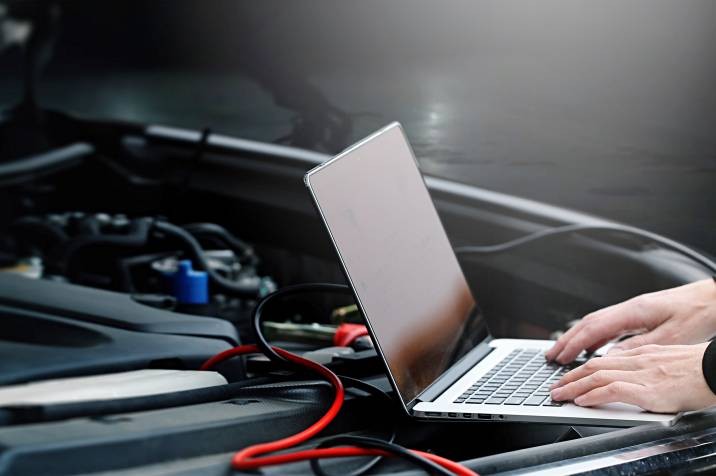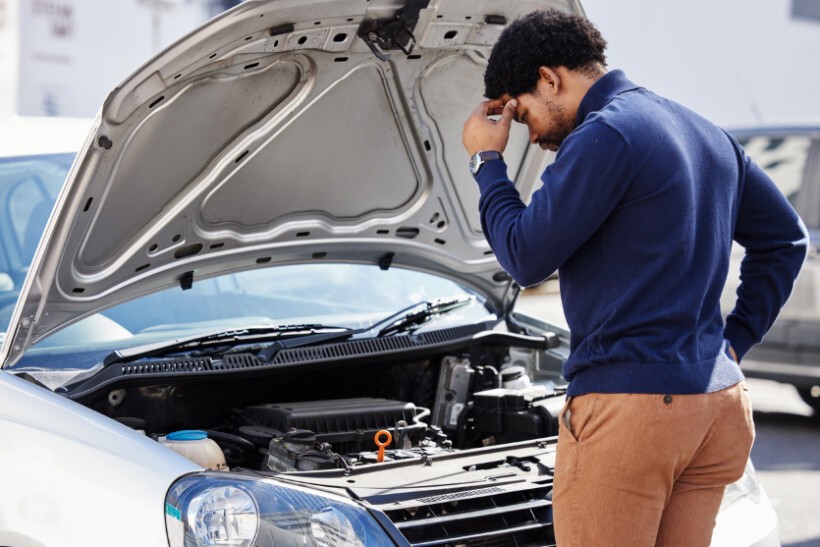It’s an all-too-familiar scenario for car owners: a light pops up on your dashboard, or your vehicle starts acting strangely. The first thought that often crosses your mind is, “How much is this going to cost me?” One of the initial steps to understanding and fixing car troubles is a diagnostic test. But how much are diagnostics for cars really? The cost can vary quite a bit, typically ranging from $20 to over $400, depending on several factors. Understanding these factors can help you budget for this essential service and ensure you’re getting the right diagnosis for your vehicle’s needs.
Getting a car diagnostic service is a smart move whenever you suspect an issue, especially if you’re considering buying a used car. While basic diagnostic checks might start around $40, more comprehensive evaluations, particularly for engine or complex system diagnostics, can reach upwards of $400. It’s also important to factor in labor costs, as some mechanics and dealerships charge hourly rates for diagnostic work. In some cases, a diagnostic test might uncover minor issues that can be resolved with simple maintenance like tightening connections, replacing spark plugs, or changing filters.
What Exactly is a Car Diagnostic Test?
Modern cars are sophisticated machines packed with onboard sensors and computers. These sensors constantly monitor various systems, from the engine and transmission to the brakes and emissions. When these sensors detect a problem outside of normal parameters, it often triggers the check engine light. A car diagnostic test is essentially a process of using specialized tools to communicate with your car’s onboard computer. This computer stores trouble codes that pinpoint potential areas of concern. The diagnostic test reads these codes, allowing mechanics to efficiently identify which part of your vehicle requires further inspection and repair.
What Does a Comprehensive Car Diagnostic Test Cover?
A mechanic utilizing a laptop for a computer-aided car diagnostic test under the hood. (Source: iStock)
When you opt for a full car diagnostic test, a qualified mechanic should be able to generate a detailed computerized report covering a wide array of your vehicle’s systems, including:
- Engine Performance: Identifying issues related to engine misfires, fuel delivery, and overall efficiency.
- Electrical System: Checking the battery, alternator, starter, and other electrical components for faults.
- Sensors: Evaluating the functionality of various sensors throughout the vehicle that monitor performance and safety.
- Transmission: Diagnosing problems within the automatic or manual transmission system, including shifting issues.
- Braking System: Assessing the anti-lock braking system (ABS), brake pad wear sensors, and overall brake performance.
- Exhaust System: Checking for issues with catalytic converters, oxygen sensors, and exhaust leaks that can affect emissions and performance.
- Fuel Injection System: Analyzing fuel delivery, pressure, and injector performance for optimal engine operation.
- Throttle Control: Examining the electronic throttle system for responsiveness and potential malfunctions.
- Ignition System: Evaluating spark plugs, ignition coils, and related components for proper combustion.
- Air Conditioning and Climate Control: Diagnosing problems with the AC compressor, refrigerant levels, and heating system.
- Airbags and Safety Systems: Checking the functionality of airbags, seatbelt pretensioners, and other safety features.
It’s important to understand that while a diagnostic test is incredibly helpful in narrowing down potential problems, it doesn’t always pinpoint the exact cause of the issue. Instead, it guides the mechanic to the specific system or area that needs a closer manual inspection, preventing further damage and saving time in the repair process.
Car Diagnostic Test Costs: What to Expect
Disclaimer: The cost estimates provided are based on industry research and third-party data. These figures are intended as general benchmarks for budgeting purposes only. Actual prices may fluctuate due to regional taxes, service fees, and individual shop pricing policies. For the most accurate cost estimate, it is always recommended to consult directly with a local mechanic.
To give you a clearer idea of how much car diagnostics cost, here’s a table outlining typical price ranges. Keep in mind these are just estimates, and actual costs can vary.
| Type of Car Diagnostic Test | Estimated Cost Range |
|---|---|
| Basic Diagnostic Scan (Code Reading) | $20 to $75 |
| Mid-Range Diagnostic Service | $75 to $200 |
| Comprehensive/Advanced Diagnostics | $200 to $400+ |


For further context, consider these average repair costs associated with check engine light issues across different states:
| State | Average Labor Rate | Average Car Repair Cost (Check Engine Light) |
|---|---|---|
| Kansas | $146.87 | $227.57 |
| New York | $135.19 | $251.36 |
| Florida | $142.74 | $253.55 |
| Texas | $145.86 | $251.67 |
| Georgia | $145.34 | $262.37 |
| California | $144.56 | $268.48 |
Key Factors That Influence Car Diagnostic Costs
Several factors can influence the final price you pay for a car diagnostic test:
Geographic Location
The cost of car diagnostics can vary significantly depending on your location. Areas with higher population density and greater competition among auto repair shops often see more competitive pricing. Mechanics in these areas may need to keep their rates attractive to draw in customers. Conversely, in more rural or isolated locations with less competition, diagnostic service prices might be higher.
Mechanic’s Skill and Experience
Pricing for diagnostic services isn’t standardized across the automotive industry. Mechanics and auto shops are free to set their labor rates based on their expertise, the complexity of the equipment they use, and their overall business costs. Highly experienced mechanics with advanced diagnostic tools may charge more for their labor, but their expertise can often translate to more accurate diagnoses and efficient repairs, potentially saving you money in the long run.
Vehicle Make and Model
The type of vehicle you own plays a role in diagnostic costs. Common, mass-market vehicles generally have more accessible diagnostic procedures and readily available parts, which can keep costs down. However, diagnosing luxury cars, high-performance vehicles, or heavily modified cars can be more complex and expensive. These vehicles often have intricate systems, require specialized diagnostic equipment, and may necessitate mechanics with specific training. For luxury vehicles, it’s sometimes advisable to start with a manufacturer-certified dealership for diagnostics before seeking out independent mechanics.
When Should You Consider a Car Diagnostic Test?
A driver examining his car engine after experiencing performance problems. (Source: iStock)
Knowing when to get a diagnostic test can save you from bigger problems down the road. Here are key situations to consider:
- When the Check Engine Light Illuminates: This is the most obvious indicator. The check engine light is designed to alert you to potential issues that need attention.
- When Purchasing a Used Vehicle: Before finalizing the purchase of a used car, a diagnostic test is invaluable. It can reveal hidden problems not apparent during a visual inspection, saving you from unexpected repair bills later.
- As Part of Preventive Maintenance: Incorporating regular diagnostic checks into your car’s maintenance schedule can be a proactive way to identify minor issues before they escalate into major, costly repairs.
- When You Notice Performance Issues: Even if the check engine light isn’t on, if you experience unusual symptoms like decreased fuel efficiency, strange noises, rough idling, or changes in handling, a diagnostic test can help pinpoint the cause.
Finding Car Diagnostic Services
Car diagnostic tests are crucial for vehicle owners to accurately identify and address underlying problems. If you’re looking to book a car diagnostic service, platforms like Airtasker can help you connect with reliable mechanics within your budget. By posting a task, you can receive quotes from qualified Taskers in your area.
When requesting a diagnostic service, be sure to provide essential details to help mechanics give you accurate quotes:
- Vehicle Make and Model
- Check Engine Light Status (is it on, flashing, etc.?)
- Description of Noticeable Car Issues
- General Car Condition
Whether you prefer to take your car to a local auto shop or need the convenience of mobile car diagnostics, services like Airtasker can connect you with the right professionals. From routine inspections by a mobile motorcycle mechanic to specialized electrical system maintenance by an auto electrician, accessing the right automotive expertise is easier than ever.
